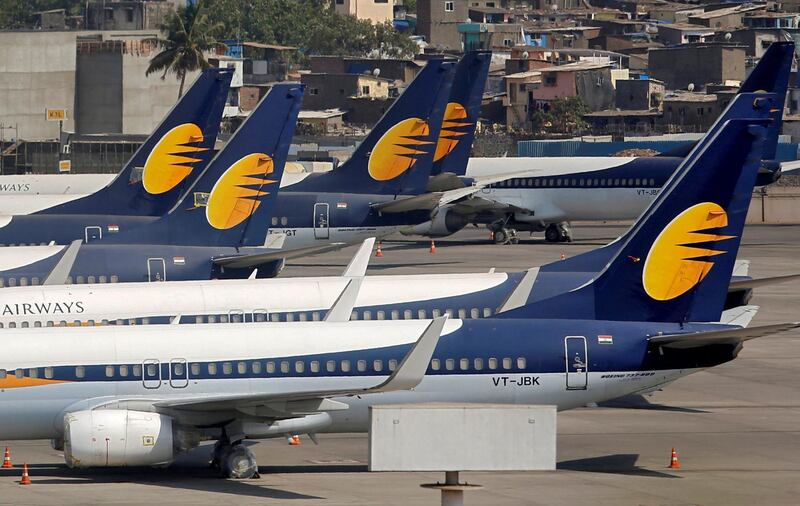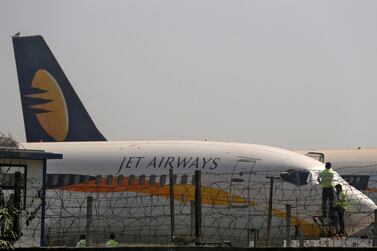The failure of India's Jet Airways will pressure plane lessors and the secondary market for aircraft such as Boeing 737s, Airbus A330s and Avions de Transport Regional ATR 72s, analysts say.
The increasing number of airlines going bust is dumping more jets into the market and hurting their lease values and secondary values, according to Bloomberg Intelligence.
"The failure of Jet Airways will hurt Boeing by dumping a lot of its 737s into the market, but the effect will be sharpest on lease rates and secondary values for ATR 72s and Airbus A330s," senior aerospace industry analyst George Ferguson and associate aerospace analyst Francois Duflot at Bloomberg Intelligence, said in a research note.
Jet Airways, once ranked India's biggest airline by market value, halted operations after wrestling with massive debt piles. It is the second Indian airline after Kingfisher Airlines to ground its entire fleet in the last decade, despite of the country's booming aviation industry. Boeing took an impairment charge over customer financing losses following the near-collapse of India’s Jet Airways.
Other recently failed carriers include Iceland’s WOW air that became the latest budget airline casualty and Nordic budget airline Primera Air.
"Adding Jet Airways to a long list of airlines that are experiencing difficulties or shuttered operations fuels our concern as fast-growing carriers fail due to weak pricing power, dumping newer aircraft back into the marketplace," the report said.
Much of the fleet of these recently failed carriers is mainly owned by lessors that will re-allocate these relatively young assets -- usually at lower lease rates -- to keep producing cash, which hurts market health, according to Mr Ferguson and Mr Francois Duflot.
"We believe the market needs less capacity and fewer aircraft," they said.








